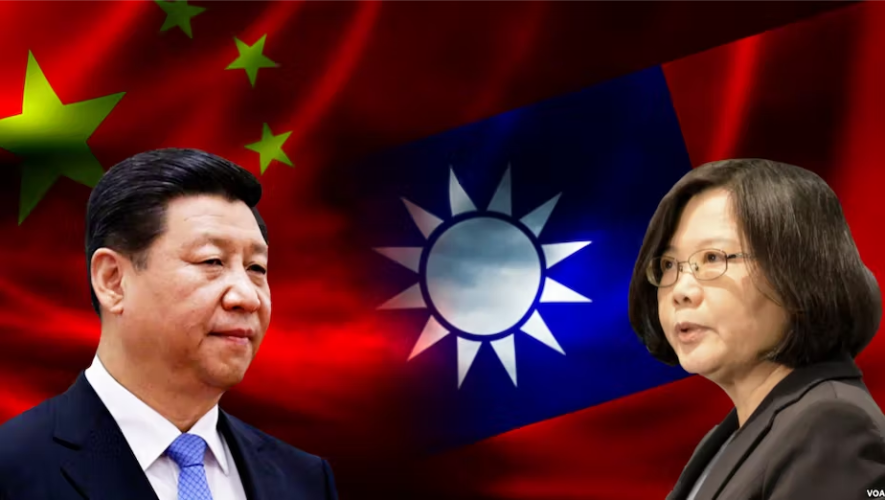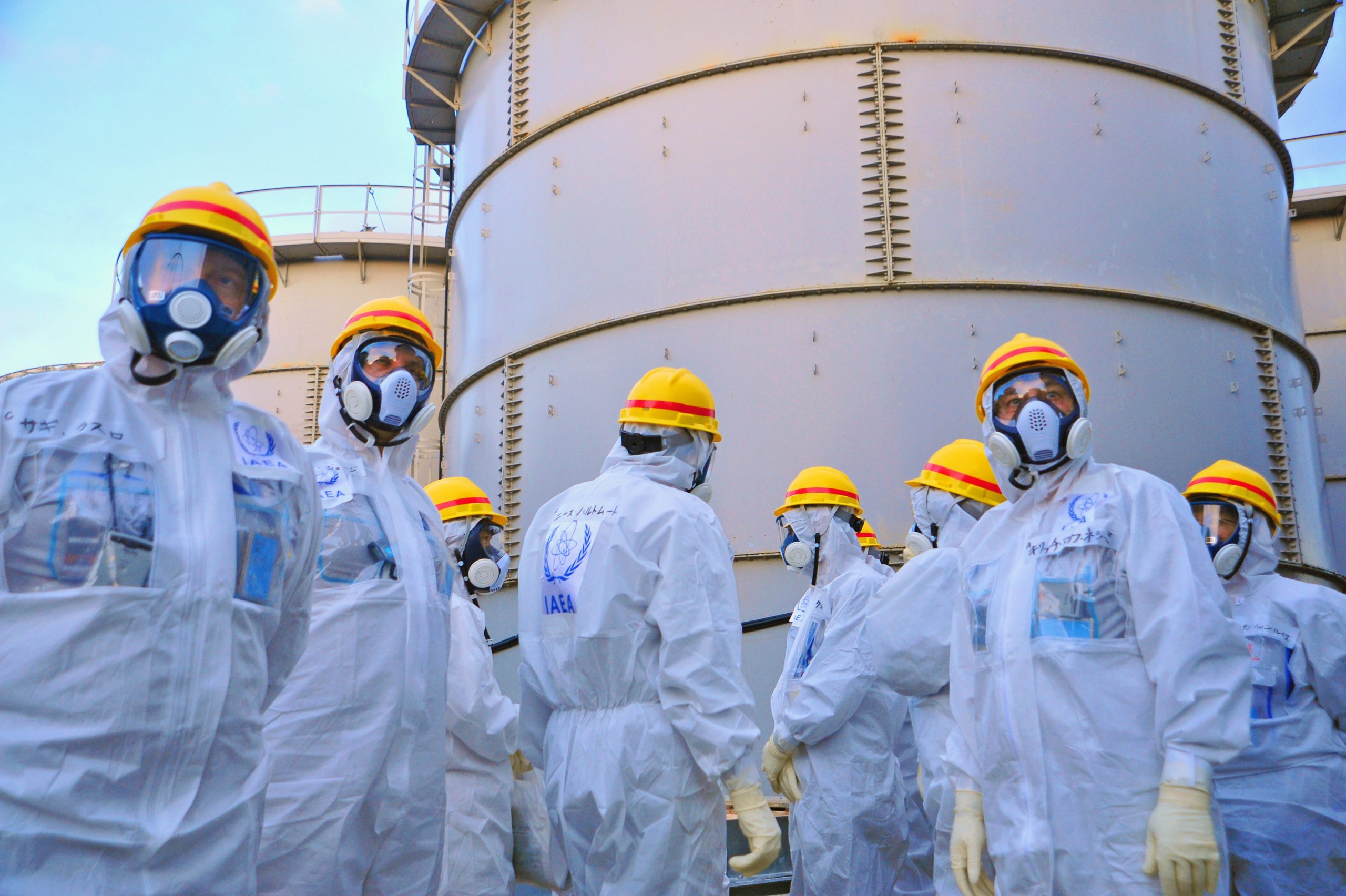An open war between Taiwan and China looms over international politics. Following former House Speaker Nancy Pelosi’s visit to Taiwan in August 2022, many experts voiced concerns that this blunt act of US diplomacy could exacerbate tensions, and the succeeding developments seemed to confirm their worries. Chinese Foreign Minister Wang Yi vehemently condemned the visit, asserting that “the United States has become the ‘biggest destroyer’ of peace” in the region. China deployed both economic sanctions and aggressive military exercises along the Chinese-Taiwanese border in response. Military operations included multiple ballistic missile launches into Taiwan’s surrounding waters, warship and combat plane probes across the strait, and target practice with the DF-15 missile, which can carry nuclear warheads. Taiwan also reported Chinese-led cyberattacks during the visit.
Despite the US’ efforts, there is no doubt China’s hegemonic presence casts pressure on Taiwan. Though, the American people should not be worried about America military involvement in the China-Taiwan conflict. Biden and his diplomatic advisors publicly hold muddled stances on the issue, perhaps a strategic way to leave room for retreat in case of future maneuvers. The benefits of backing Taiwan are far outweighed by the costs, which could range from losing our largest trading partner to nuclear threat. In consideration of these potential threats, US economic sanctions and military equipment provision seem more likely.
Historical Antagonism between Mainland China and Taiwan
In 1865, Qing Dynasty China severed from Taiwan under the Treaty of Shimonoseki as war reparations to Japan after the First Sino-Japanese War. Then, after eighty years of colonial occupation, the San Francisco Peace Treaty returned Taiwan to the Chinese Nationalist Party (KMT) at the end of World War II.
In 1949, as the Chinese Communist Party (CCP) emerged the winner of the Chinese Civil War, the KMT retreated to the island of Taiwan and established it as an independent state. The CCP never recognized this separate sovereignty and now seeks reunification with increasingly aggressive measures after its rising geopolitical relevance.
The Taiwanese people see themselves as victims of war, frail governments, and foreign occupation. Therefore, it is only natural for Taiwan today to distrust foreign intervention. Seventy-three years of separation manifested a strong sense of statehood among the Taiwanese people. However, the rhetoric in mainland China tells a different story. By framing Taiwan’s secession as the crest of national humiliation and Taiwan’s return the redemption of Chinese dignity, the CCP constructs a powerful political narrative that enhances Chinese patriotism and places China on a moral high ground, paving the way for a military conflict.
With ubiquitous propaganda in mainland China, the notion that Taiwan should be returned to its “motherland” is a form of political correctness among mainland Chinese citizens. It is no surprise that the CCP government, after fifty years of relentless preaching of this “One-China” principle, views reunification as a form of non-negotiable “Manifest Destiny” where Chinese soil is finally reunited after the Qing Dynasty ’s collapse.
Current Developments
Though the Chinese Foreign Ministry stated its preference for a peaceful reunification, Chinese president Xi publicly stated that he reserves the right to use force against Taiwan. Meanwhile, President Biden repeatedly expressed that the US would defend Taiwan if China attacks. But, the White House later clarified that the official US policy—which doesn’t commit to military action on Taiwan—has not changed.
Overall, it seems that China is growing increasingly impatient towards Taiwan’s indefinite postponement of reunification, and it is further provoked by the increasing US support and sale of arms to Taiwan. However, the US seems to not take these warnings seriously. Following his predecessor, House Speaker Kevin McCarthy met Taiwanese President Tsai Ing-wen in March of this year despite consistent Chinese reprobations. This kind of disrespect towards the CCP may lead to devastating consequences if Beijing feels pressured to prove its determination.
Competing US Foreign Policy Suggestions Towards the Taiwan Issue
Contrary to President Biden’s temporary commitment of defense, peaceful reunification across the Taiwan Strait is in both China and the US’ national interest.
Mainstream experts believe it is in the best interest of the US to maintain the current ambiguous status of Taiwan because it appears advantageous for all three parties. If China and Taiwan go forward as is without the US intervening, they claim, China and Taiwan’s economic integration would continue to facilitate political harmony and security. Furthermore, when negotiations across the Taiwan Strait are pragmatic, instead of debates about freedom, there would be more room for peaceful prospects and allow the US to pull away smoothly.
Realists, who believe that world politics are ultimately determined by military power and economic wealth, argue that the US should retract publicized support and simply get out of Taiwan affairs. Because of the narrowing economic and military gaps between the US and China, as well as the expanding gaps between the Chinese mainland and Taiwan in both spheres, Taiwan should not remain an unstable root of tension between Washington and Beijing. Many argue that the long friendship and cooperation between the United States and the Chinese mainland are far more important than Americans’ special sentiments toward Taiwan; the best policy, therefore, is to accept China’s reunification if and when it does manifest.
In reality, the optimal policy is a mixture of both perspectives. The US should recognize China’s disproportionate political ambition and military strength, understand that a large part of Chinese aggression towards Taiwan comes from US involvement, and allow Taiwan to negotiate with China independently. However, the possibility for Taiwan to maintain its democratic alliances is grim under such negotiation. By looking at the precedents of Hong Kong and Macao, the most likely outcome for Taiwan may be provincial autonomy with federal supervision.
The War on Chips
Understanding its own vulnerability, the Taiwanese government has strategically poured its resources into light industrialization. Today, Taiwan’s primary defense is its economic influence. Namely, its dominant position in the semiconductor industry.
The Taiwan Semiconductor Manufacturing Corporation (TSMC) produces more than half of the world’s most advanced semiconductors and 9 percent of the most advanced chips. Most importantly, it is also the exclusive producer of the semiconductors used in Apple’s iPhones, AMD’s CPUs, and Qualcomm’s snapdragon chip that power many Android phones. Military invasion and TSMC’s collapse would no doubt send shock waves across global electronic supply chains. Considering the level of digital integration into our lives today, such shortages may cause detrimental destruction to general economic well-being across the world.
Many financial analysts and academic experts believe that Taiwan’s position in the semiconductor industry deters China from invading. But, there are many approaches China can take to terrorize the Taiwanese government without jeopardizing TSMC’s capabilities. In the event that TSMC is still able to produce chips while China dictates the terms of access, companies that rely on TSMC and other Taiwanese semiconductor companies will be left at the mercy of Xi’s demands.
This is not to say that the US is left helpless. If the US government prepares for this outcome, US manufacturers could seize on a market dislocation by increasing domestic production. Currently, America’s semiconductor industry isn’t as advanced as Taiwan’s, but increased investments can change that. If the US stays put and halts direct intervention in Taiwan, China is likely to take graduate action that could allow US manufacturers more time and flexibility. However, if such precautions are not taken, and China abruptly annexes Taiwan, an outcome more likely with active American intervention, Silicon Valley would face painful material scarcities and a detrimental industry disruption.
Prospects Analysis
The risk of conflict has never really eased between Taiwan and China. At the best of times, the Taiwan independence problem preserved frictions between Taiwan and China despite their increasing economic integration and peaceful coexistence. Today, with Chinese power growing in East Asia, it is easy to assume that war is imminent.
But it is not in America’s national interest to contribute to Taiwanese military defense as it does currently. Such action may lead to great costs with little possibility of success, and Chinese retaliation can take many forms ranging from economic to nuclear. Furthermore, direct aid would only make negotiations between Taiwan and China more distrustful and arduous.
Leaving the politics behind, the best gift to the Taiwanese people is ultimately peace and prosperity. If America really believes in the liberal justice it claims to promote, it should simply stay informed, prepare itself for the economic consequence of Taiwanese annexation, and dim its presence on this affair.



